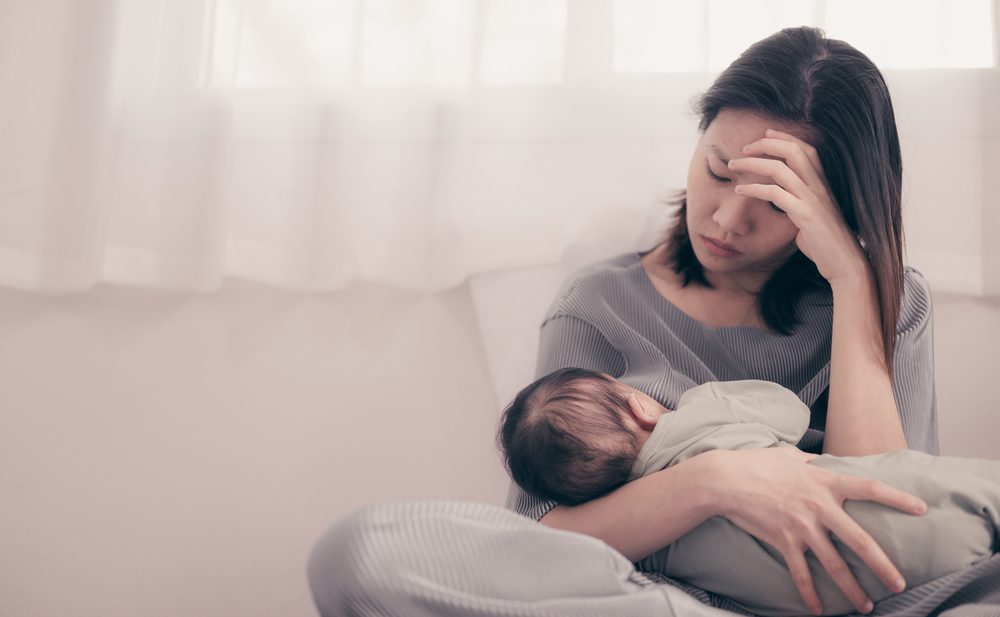- May 16, 2024
- by Harshita Bajaj
- Depression
One of the most crucial aspects during pregnancy and post birth is maternal mental health. Maternal mental health is important for not only the overall well-being of the mother but also the child. One common concern or condition that we need to bring to people’s attention is postpartum depression.
Postpartum depression is a common affliction that impacts approximately 10-15% of women within the first year after childbirth, further, perinatal anxiety and perinatal depression impacts 10% of women. Mothers may also experience anxiety, isolation, stress during pregnancy and post childbirth. Let’s look at some statistics revolving around maternal mental health.
Maternal Mental Health Statistics
According to the World Health Organization (WHO), the following statistical information is of concern when it comes to maternal mental health:
- 10% of women during pregnancy and 13% of women after just giving birth experience a mental health disorder, primarily depression
- In a developing country, these prevalence rates are found to be higher, i.e. 15.6% during pregnancy and 19.8% after child birth
- 20% of mothers in developing countries are diagnosed with clinical depression
- Suicide is a leading cause of death among pregnant mothers and women who have just given birth
- Pregnant women identified with at least one mental health problem, i.e. percentage of somatoform/dissociative disorder being 24.2%, anxiety 16.9%, stress reactions 11.7% and depression 9.3%
- 20% of women experience suicidal thoughts or undergo acts of self-harm during the perinatal period
Mental Health during pregnancy
The pregnancy period requires a lot of care and support as any mental health issues faced by the mother that may be overlooked or untreated would lead to adverse effects on the health of the mother and the child both.
- Below are some risk factors that can increase the risk of mental health issues during pregnancy:
- A history of mental illness in the family
- Financial stress, poverty and/or debt
- Extreme stress or high levels of cortisol
- Relationship difficulties or conflict
- Major life events such as divorce, job change, migration, etc
- Exposure to violence (domestic, gender-based, and sexual)
- Complications in pregnancy
- Emergency and conflict situations
- Natural disasters
Lack of social support
Many such factors can predispose the mother and baby at a risk of mental health issues, developmental delays, concerns or disorders, ill health highlighting the gravity of detecting and treating any issues faced by the mother. The risk of suicide and infanticide is also to be considered here.
Perinatal Mental Health Support
Pregnancy is life-altering for mothers and their partners, and often adjusting to this change can be conflicting or observed as a stressor, leading to development of or worsening of previous mental health conditions for many. Keeping in mind the issues that are faced by women during the perinatal period, not to mention the prevalence of suicide and self-harm, not only is the mother’s health and well-being impacted, but also the child can be subject to negative emotional and physical development.
The importance of regular screening, diagnosis and treatment for maternal and child health (MCH) is delineated in WHO’s recommendations and policies for MCH services.
Some pointers to keep in mind to support a mother and child during the perinatal period are:
- Routine screening and check ups during prenatal care visits and postpartum check ups are essential for early detection and intervention, especially for risk of depression, anxiety, or other mental health concerns.
- Counseling and therapy services by a developmental psychologist, child and adolescent psychologist, family and marriage therapist, pediatrician and allied healthcare specialists who can provide specialized services according to the concerns and issues being faced. Further, support groups can be especially helpful for single parents.
- Partners, family members, friends and other support persons in perinatal mental health care can help in improving the social support and create a supportive environment for the mother and child.
- An integrated support of mental health care, prenatal care, obstetric care and pediatric care is most essential for ensuring a continuity of care across the perinatal period.
- A nutritious diet, lifestyle conducive to a healthy pregnancy and childbirth with activities that enhance mental health and well-being with no engagement in substance use is extremely important to maintain the mental and physical health of the mother and child.
Crisis Intervention and Emergency Services should be easily accessible and in place such as protocols, resources, access to emergency mental health and crisis hotlines.
Maternal Mental Health Therapist
Therapists and Mental Health Professionals specialized in maternal mental health issues and perinatal care include Counseling Psychologists, Clinical Psychologists, Marriage And Family Therapists, Developmental Psychologists, Clinical Social Workers, Psychiatric Social Workers, Psychiatrists, Clinical Nurse Specialists (CNS) who can help in improving the mental health and overall well-being of the mother during pregnancy and post giving birth. Seeking professional support can be extremely beneficial during the perinatal period and postpartum period for the mother as well as the child and is hence highly recommended even if the mother does not have any specific concerns or issues in mind as a preventive measure.
Further, to find therapists in your area who specialize in perinatal mental health, reach out to us. North American Behavioral Health Services allows you to filter your search based on location, specialization, experience in years, specific issues treated, insurance accepted, and other preferences. All you need to do is reach out to us and we will connect you to the right help!
















